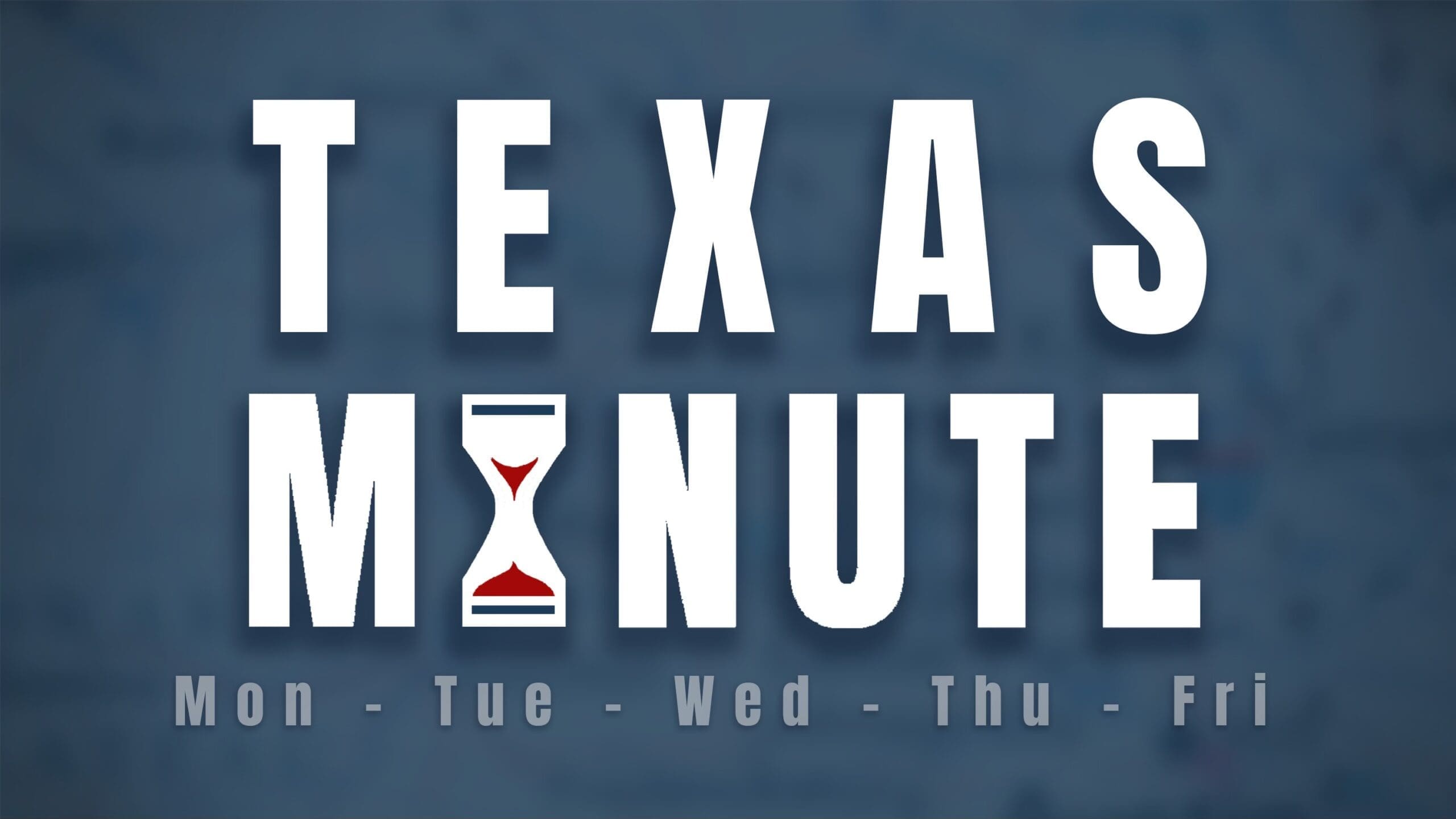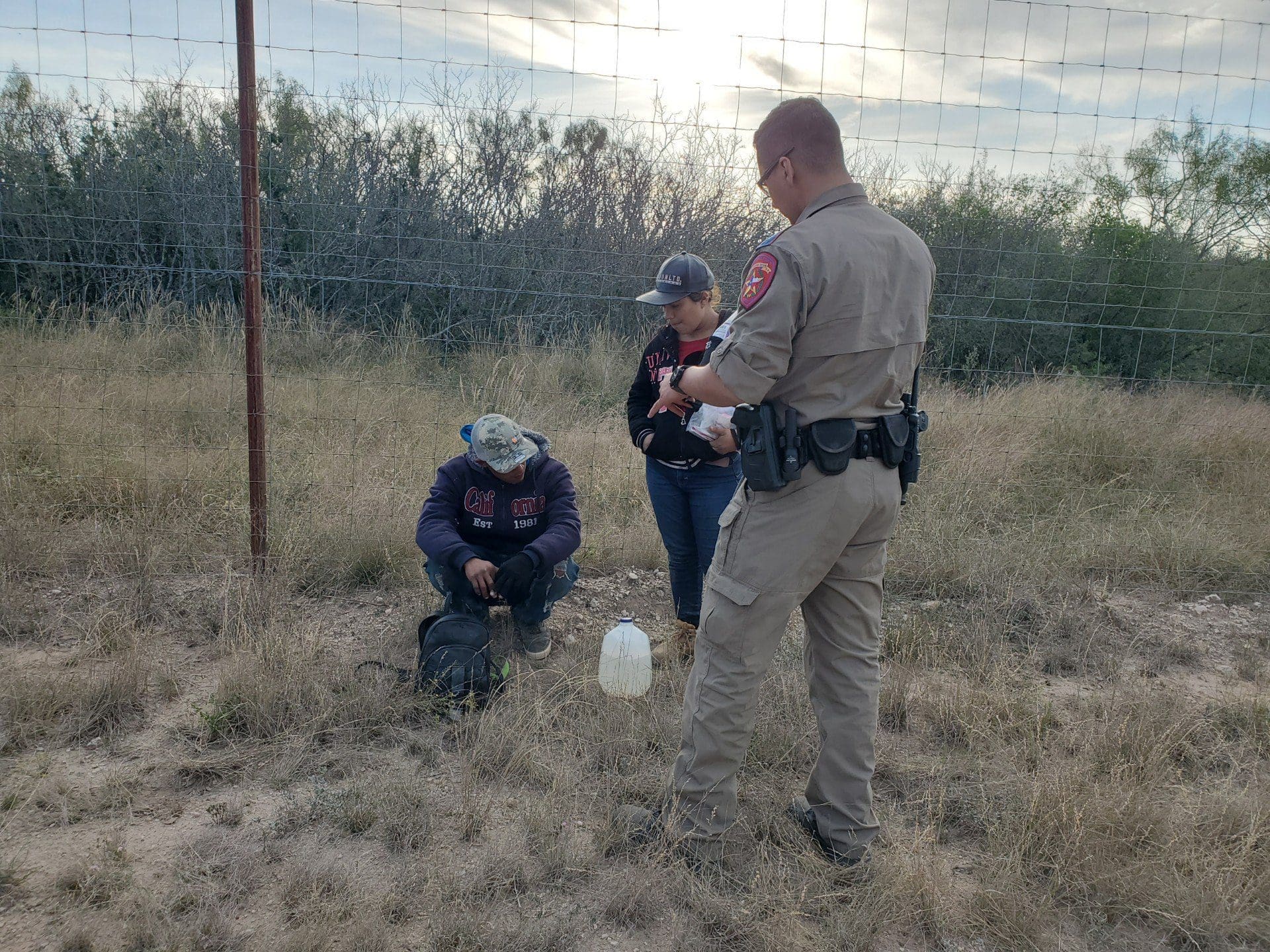Internal communications reveal that last year the Texas comptroller repeatedly told the Texas Military Department they had broken state law. After a third violation, the matter appeared to reach a tipping point. The comptroller felt it necessary to threaten the state military.
This is the latest in a line of issues exposed during Operation Lone Star, issues that deserve a full investigation by state legislators.
Refresh
Launched in March 2021, Operation Lone Star (OLS) is Gov. Greg Abbott’s border patrol operation leveraging the Texas National Guard (TNG). He launched the operation after a public outcry over sustained illegal border crossings into Texas from Mexico. On July 27, he ordered the TNG to “assist” the Texas Department of Public Safety “by arresting lawbreakers at the border.” Critics to Abbott’s right advocated for halting their entrance into Texas.
From the start, the operation has been plagued with issues, including soldiers not being paid on time, lack of equipment, poor living conditions, sexual assault or harassment, and punishing soldiers through physical exertion (also called “smoking soldiers”).
Texas Scorecard’s investigation brought forth testimony that paycheck issues at the Texas Military Department (TMD), under which all of the state’s armed forces are organized, has been an issue for some time. Mike McDonald, who served in the Texas National Guard from 2013 to 2019, told Texas Scorecard that TMD has long had problems with pay, as well as retaliation against whistleblowers. He believes what is needed is an overhaul of the full-time staff, not just the Texas adjutant general. Full-time staff are referred to as the ARGs, the Active Guard Reserve.
An After Action Report of TMD’s response to 2017’s Hurricane Harvey showed that problems similar to those identified during OLS—namely pay and supply issues—also came up during that relief operation, but to a smaller degree. Recommendations to address these issues made during then-Texas Adjutant General (TAG) John Nichols’ tenure appeared to have gone unaddressed by the successor Gov. Abbott appointed, Maj. Gen. Tracy Norris (now former TAG).
But that wasn’t all. As Texas Scorecard expanded its investigation, Serious Incident Reports (SIRs) were obtained of soldiers assigned to Operation Lone Star. These reports revealed repeated incidents of accidental weapons discharge, criminal complaints, reports of substance abuse, and mental health episodes. Some reveal a lack of discipline among soldiers, while others appear to validate reported strains between OLS soldiers, law enforcement, and U.S. Border Patrol. The Serious Incident Reports also detailed multiple soldiers struggling with suicidal thoughts.
Texas Scorecard was also told of a lack of proper medical care for soldiers.
Apparently, all OLS did was bring to the surface and metastasize long-simmering, but unaddressed, issues within the Texas Military Department.
As a result of the endless stream of problems within TMD, Norris was fired by Abbott on March 14. He replaced her with Maj. Gen. Thomas Suelzer as the new Texas adjutant general. Maj. Gen. Charles Aris of the 36th Infantry Division and TMD’s Public Affairs Officer Col. Rita Holton were gone from their positions as well.
However, more efforts may be needed to fully address the number and severity of issues identified in the Texas Military Department during OLS.
In September, Texas Scorecard exposed how the state military agency appeared to be acting in support of the Biden military vaccine mandate, despite orders by Gov. Abbott.
There has yet to be a full inquiry or action by the Texas Legislature on the myriad of problems that emerged from the Texas Military Department during Operation Lone Star. Internal state government records Texas Scorecard received over the course of this year show more problems within the stage agency as one digs deeper.
Pay
As previously reported in January, communications obtained from the Texas comptroller’s office revealed they were scrambling to address soldiers assigned to OLS not being paid on time. The problems appeared to be due to turnover and inexperienced staff at the Texas Military Department.
At one time, the issue led to a conflict between the two state agencies.
Jennifer Smith, of the comptroller’s Fiscal Management Division, wrote a letter on December 30, 2021, chastising Robert McFarland, the chief financial officer of the Texas Military Department. “The Comptroller’s Treasury Operations has notified Fiscal Management that a warrant issued by the Texas Military Department was presented for payment prior to the pay date,” she wrote.
In other words, TMD was trying to pay someone early. Smith wrote that is a violation of state law.

Source: Texas comptroller
“Presenting warrants for payment before the pay date is a violation of Texas Government Code Ann. Sec. 403.072 (b) and (c) (Vernon 2005),” Smith wrote. What’s more, this wasn’t the first incident. “This is the third violation of your bailment contract in the last 24 months. Texas Military Department previously violated its bailment contract in November 2021 and in December 2021.”
In the letter, Smith explained that bailment contract “is a legal agreement between Texas Military Department and the Comptroller that allows the Comptroller to release payroll or payroll deduction warrants prior to the issue date with the condition that they are not distributed until the pay date.”
Attached was a copy of the check that triggered Smith’s letter.

Source: Texas comptroller
“After the first violation, Texas Military Department outlined corrective steps to be taken to avoid future violations of the bailment contract,” Smith wrote. She then asked MacFarland to “detail any additional steps [the] agency will take to prevent future violations.” Days later, on January 5, 2022, MacFarland wrote back, saying, “We will outline additional steps to avoid future violations.”
That same day, comptroller staff contacted TMD about more errors regarding soldier pay. Danette McWilliams, a production support payroll analyst with the comptroller, emailed Melissa Harden of TMD. In this email, McWilliams tells Harden that “we have identified 297 [state active duty employees] who received duplicate payments.” State Active Duty (SAD) is when soldiers in the Texas National Guard are put on a state operation and are paid by state, rather than federal, taxpayers. The interaction between McWilliams and Harden further confirmed that comptroller staff were hard at work trying to fix TMD’s mess.
Fully Fixed?
Internal communications from the Texas comptroller showed them rushing to help the overwhelmed and inexperienced staff at the Texas Military Department with the massive staffing increase required by Operation Lone Star. That increase caused the disfunction in the complex system used to pay soldiers.
There are also indicators that these problems continued for some time. On the Operation Lone Star Reddit, where soldiers publicly share other problems they experience with OLS, paycheck issues were still brought up this July.
“Did anyone else get an overpayment notice email recently?” user ANGleaveorstay posted on July 29, 2022. “Mine said they overpaid me a couple hundo[sic] from my … paycheck in November.” One replied that others also experienced this issue, and a solution raised in the thread was just to leave Texas. Two others complained about pay stubs, another much-noted problem during OLS. One complained about how poorly designed the pay stubs are, while another complained about still not receiving pay stubs.
On August 30, 2022, Texas Scorecard sent an open records request to the Texas comptroller, requesting all internal notices and/or memos regarding overdue pay, and/or back pay, regarding the Texas National Guard from May 1 to August 30 of this year. They replied that “the only item [they] located was an email subject to attorney-client privilege” discussing the attorney general’s ruling about another open records request we had sent on this subject.
While encouraging, there were questions as to whether or not the lack of error messages is due to the problem being resolved, or less stress being put on the system.
“We’re not having any issues with that agency at this point,” Kevin Lyons of the Texas comptroller’s office told Texas Scorecard. “Those issues are resolved.” In a follow-up, Lyons was asked when those issues were resolved. “I would have to get back to you on that timetable,” he replied. Lyons pointed out, as communications also show, that the source of the problems was the Texas Military Department, not the comptroller’s office. “From what my understanding is, it’s information we were receiving on the front end; we weren’t receiving the correct information. It wasn’t about it was too many checks to process,” Lyons said. “I know what was causing problems. I don’t know when it got solved, or how it got solved.”
Texas Scorecard also sent an inquiry to the Texas Military Department. They replied on December 15, and did not state all payroll problems had been resolved.
“The Texas Military Department will discontinue semi-monthly pay periods in January, instead conducting only once-monthly pay as is standard for Texas state agencies. We have provided a 90-day awareness of this payroll adjustment to our personnel. We have also implemented Tax Education through training and IRS Volunteers as well as established personal financial counselors across the OLS force for support. Moreover, we have established a call center to contact all former OLS service members to discuss the tax withholding issue and offer support as well as to receive calls from service members currently serving on the mission desiring support. In February, we will establish tax coaches and assistance centers across the OLS basecamps to support tax preparation.”
An October Texas Tribune and Military Times article reported that Texas soldiers assigned to Operation Lone Star may have to pay “hundreds or even thousands of dollars in unexpected federal taxes” due to the TMD’s payroll system not withholding enough in federal taxes.
In the lead-up to November’s election, Gov. Abbott found himself under pressure from promises like those from Arizona gubernatorial candidate Kari Lake. She told Texas Scorecard that she would declare an invasion along the border using Article I, Section 10, Clause 3 of the U.S. Constitution, finish former President Donald Trump’s wall, and deploy the Arizona National Guard not just to deport illegal border-crossers, but to stop them from entering altogether.
Following the November election, after besting Beto O’Rourke by more than 10 points, Gov. Abbott announced an invasion on the border, but it remains to be seen how an invasion declaration manifests in action. And were he to deploy the Texas military in a Kari Lake-style border operation, could the Texas Military Department do it effectively, or would it reveal more unresolved issues?
Conclusion
The problems Operation Lone Star exposed within the Texas Military Department have shown the dangers of over-relying on a federal government to do a job it hasn’t done in decades: secure the border. Such over-reliance appears to have resulted in a lack of proper attention and maintenance of TMD by state public servants. When said public servants called on TMD to conduct a major operation, failures and errors mounted.
Until there is a full and open inquiry into the Texas Military Department by the state Legislature, Texans’ confidence in their state armed forces’ capability of effective response to emergency situations and major operations could be limited. As Elon Musk recently said of his move to restore Twitter, “Transparency will earn the trust of the people.”
In Part 2 of this series, Texas Scorecard will explore unaccountable spending of taxpayers’ money in a quest to rapidly fix problems that surfaced during Operation Lone Star. If you or someone you know is still experiencing hardship within the Texas Military Department, please contact rmontoya@texasscorecard.com.
This article was updated with the Texas Military Department’s December 15 response to our December 12 media inquiry, and context for the tax issue they referenced.





